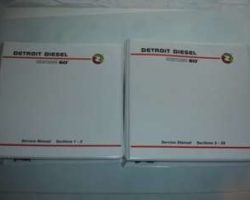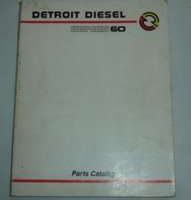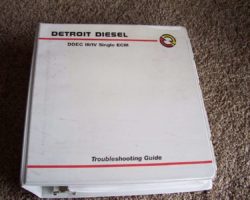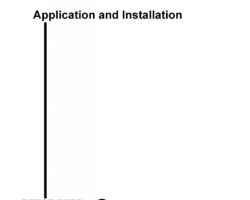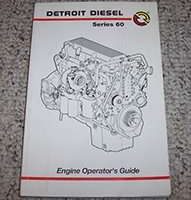2001
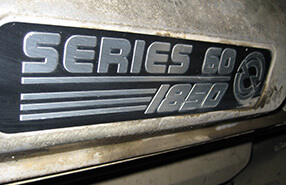
Factory Original DETROIT DIESEL 60 SERIES 2001 Manuals
The DETROIT DIESEL 60 SERIES 2001 has proven popular over the years. Below are the factory original DETROIT DIESEL 60 SERIES 2001 operators and service repair manuals available. In addition, this page has links to the electrical wiring and parts manuals for the DETROIT DIESEL 60 SERIES 2001. These are the exact manuals your DETROIT DIESEL dealer has and are the best money can buy. If DETROIT DIESEL 60 SERIES 2001 is not what you are looking for, click on the navigation links or call our friendly staff for manuals for all trucks, engines, transmissions and equipment in the United States. Click or call now.
Click DETROIT DIESEL 60 SERIES 2001 Manuals Below
Showing all 5 resultsSorted by price: high to low
Related Questions
What fuel system does the 2001 Detroit Diesel 60 Series use?
The 2001 Detroit Diesel 60 Series engine uses an electronic fuel system that includes injectors, an integral fuel manifold in the cylinder head, a fuel pump, a primary fuel filter, and a secondary fuel filter. The fuel system also incorporates a cooling plate for the Electronic Control Module (ECM) or Electronic Distributor Unit (EDU) and can include a fuel check valve if equipped.
What are the specifications of the 2001 Detroit Diesel 60 Series?
The 2001 Detroit Diesel 60 Series engine is an inline-six 4-stroke diesel engine with a displacement of 14.0 liters. It has a cylinder bore of 5.24 inches and a piston stroke of 6.62 inches. The engine features an overhead camshaft, electronic fuel injection, and a turbocharger with an air-to-air intercooler. The power output for the 14.0L engine ranges from 425-515 hp at 1800 RPM, and the torque output ranges from 1,550-1,650 lb-ft at 1200 RPM.
What is the recommended oil change interval for the 2001 Detroit Diesel 60 Series?
The recommended oil change interval for the 2001 Detroit Diesel 60 Series is typically every 15,000 miles or every 500 hours of operation, following the manufacturer's guidelines.

